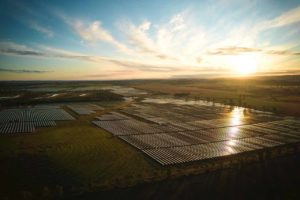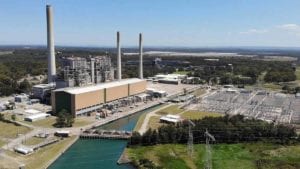Staff at Melbourne University have pleaded for the institution to back its widely respected Energy Transition Hub, now under threat of closure from the lack of funds, and called on the university to stop accepting funding from the fossil fuel industry – as it did with tobacco – from 2025.
The Energy Transition Hub, and the related Climate and Energy College, are under threat because the University did not renew funding for the Climate and Energy College in 2019, and it had to rely on cross-subsidised funding from the Energy Transition Hub, which sits within the college and which had a separate funding agreement with the federal government.
But that federal funding was will come to an end in July, 2020, after the federal government announced a cost cutting measure in February.
“There has been no guaranteed support from the University for the Hub and College to continue (and indications (are) that the Hub will be abolished),” the Climate Justice Network within the National Tertiary Education Union wrote in a letter to vice-chancellor Duncan Maskell.
“A number of staff have already left the College, and there is no longer any administrative support. This means that the livelihoods of a large number of staff working on issues related to climate and energy are precarious,” the letter says.
“We demand that the future of climate and energy scientists be taken seriously by the University, with a commitment to no job losses in these areas. If the University is to embody climate justice leadership, green jobs must be protected.”
The two hubs have played prominent roles in pushing the case for the clean energy transition, climate policy, and in preparing reports and advocacy in the complex web of Australia’s climate and energy policy. Staff fear that their roles could come to end soon.
The University, meanwhile, is focused on the fossil fuel industry, with a list of upcoming seminars looking at coal, gas and nuclear, and not a single one on renewables and the clean energy transition.

-
“We know that the University already has significant ties to several major fossil fuel companies such as BHP, and that there is a direct incentive in the sector for staff to seek out partnerships funded by these companies (for example through linkage grants),” the letter says.
“We demand that the University provide a clear and transparent audit, overseen by a joint NTEU and management committee, of all funding received from the fossil fuels industry in all subsequent Sustainability Reports. We also demand a phase out all of fossil industry funding by 2025.”
In a separate media statement, the Climate Justice Network also expressed concerns that the funding threats are likely to “deepen its complicity in the climate crisis” – such as its recently highlighted links with ExxonMobil and Saudi Aramco – as it looks for sources to cover revenue shortfalls.
“But it doesn’t have to be this way, the statement says.
“The open letter calls on the University to:
-
“Commit to retaining all current Climate and Energy College and Energy Transition Hub employees;
-
“Initiate a clear and transparent audit, in partnership with the NTEU, of all funding received from the fossil fuels industry in all subsequent sustainability reports, with a view to phasing out all of these industry ties by 2025;
-
“End non-funding related relationships and cooperation with the fossil fuels industry, and include a statement on this on the Sustainability at Melbourne website by the end of 2020;
-
“Hold a town hall style meeting before the end of 2020 to engage staff in democratic processes for creating a vision for a green university.”
- RenewEconomy and its sister sites One Step Off The Grid and The Driven will continue to publish throughout the Covid-19 crisis, posting good news about technology and project development, and holding government, regulators and business to account. But as the conference market evaporates, and some advertisers pull in their budgets, readers can help by making a voluntary donation here to help ensure we can continue to offer the service free of charge and to as wide an audience as possible. Thank you for your support.
-










